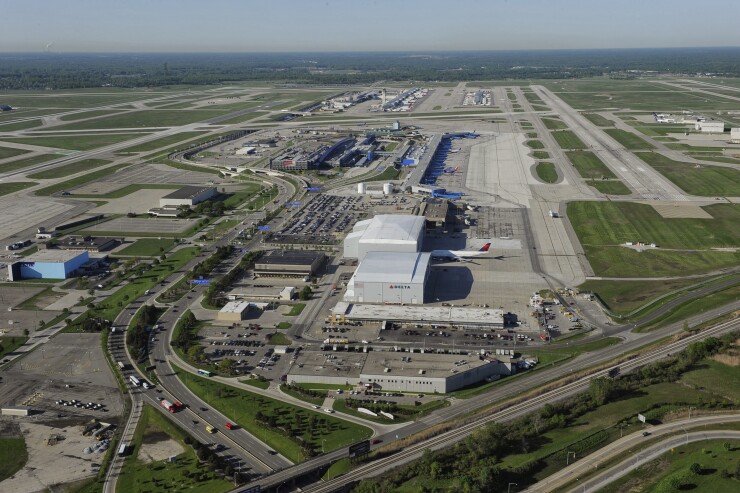WASHINGTON -- A coalition of conservative, free market and budget watchdog groups sent a letter to congressional lawmakers urging them to reject the narrative advanced by commercial airlines that an increase the passenger facility charges imposed by airports would be a tax increase.

Airports have been clamoring for an increase in the PFC limit for years, arguing that they need it to help finance capital improvements that would be paid for with new bond issues.
The letter in support of a PFC increase was signed by officials of a budget watchdog group Citizens Against Government Waste as well as leaders of the conservative 60 Plus Association, and the free market Competitive Enterprise Institute, the Reason Foundation, FreedomWorks and the Center for Freedom and Prosperity. Other signatories represented the National Black Chamber of Commerce and the Taxpayers Protection Alliance.
“The PFC is a local airport user fee,” their letter said. “Passengers who pay the fee directly benefit from infrastructure improvements made possible by the fee revenue. And unlike federal taxes, the PFC is collected at the local airport, never touching the federal treasury, and is only available for narrow, statutorily-defined facility improvements at the airport in question.”
The signatories to the letter said they view PFCs as "the only viable alternative to taxpayer-funded Airport Improvement Program (AIP) grants." They characterized the AIP program as "federal meddling in local airport investment decision-making," which reduces flexibility and "needlessly raises costs."
About 31% of the revenue raised from PFCs is used for debt service on bonds that have been issued for capital improvements, according to a
PFC revenues are heavily used for landside projects, such as terminals and transit systems on airport property, and for interest payments, according to CRS. Annual system-wide PFC collections grew from $85.4 million in 1992 to over $3.4 billion in 2018.
Airports raised approximately $17.4 billion in 84 bond issues in 2018, a substantial increase over the $14.7 billion raised in 116 issues in 2017, according to annual data collected by The Bond Buyer.
PFCs are one of five major sources of airport capital development funding, according CRS: The other four are the federal Airport Improvement Program (AIP); tax-exempt bonds; state and local grants; and airport operating revenue from tenant lease and other revenue-generating activities such as landing fees.
The federal government role involves AIP grants, PFC authorization and tax-exemption for airport facility bonds.
“Although smaller airports’ individual grants are of much smaller dollar amounts than the grants going to large and medium hub airports, the smaller airports are much more dependent on AIP to meet their capital needs,” CRS said. “This is particularly the case for noncommercial airports, which received over 25% of AIP grants distributed in FY2018. Larger airports are much more likely to issue tax-exempt bonds or finance capital projects with the proceeds of PFCs.”
The Airports Council International-North America reports that many airports are at their maximum bonding ability using the revenue stream from the current PFC levy.
ACI officials say the average airport terminal is 40 years old and estimate
Commercial airlines, however, have adamantly opposed any increase in PFCs.
Ted Christie, CEO of budget-carrier Spirit Airlines, testified at a congressional
Rep. Rick Larsen, D-Wash., who chairs the Aviation Subcommittee of the House Transportation and Infrastructure Committee, has said lawmakers are
Airport officials said a $4 per passenger increase would essentially provide an inflation adjustment from the last time the fee was raised 19 years ago. They want Congress to include an automatic inflation adjustment that’s similar to the inflation adjustment Chairman Peter DeFazio, D-Ore., proposed in the last Congress under his Pennies for Progress bill to hike the federal gasoline tax.





